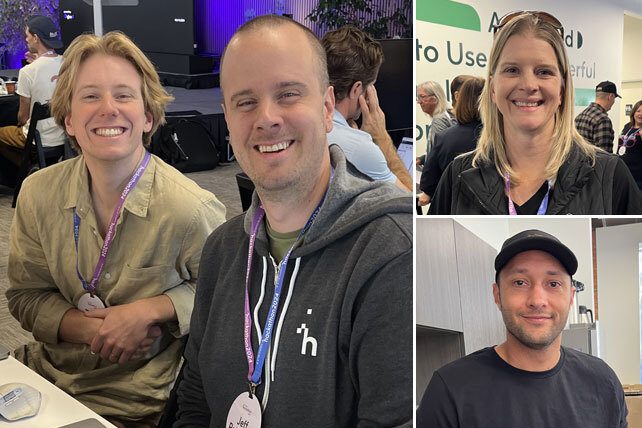But there is a broader application for churches beyond security, said Fontenot, who said Atrium AI’s solution could benefit churches by providing insights about their attendance. Many churches track attendance manually or by guesswork, but his team’s solution could help gather that data more efficiently and contextualize it.
For example, said Fontenot, the solution could enable church leaders to know “we had 500 people come through the doors today, and 200 of those were members. And then you have 300 more that…no one knows who they are, but we want to be able to connect with them.”
Atrium AI won the fourth place prize of $10,000 in the Best of Challenge category.
Notably, the theme of the AI and the Church Hackathon was using AI redemptively. In an interview with ChurchLeaders, Stetzer acknowledged the apprehensions that pastors rightly have about using AI. “I think concerns can be real, but simultaneously, our concern is not going to stop the advancement of AI,” he said. “So the question is, will we be engaged in that?”
“For example, the earliest and biggest use of the internet was pornography, and the earliest and biggest use of VHS was pornography,” Stetzer continued. “And then Christians said, ‘We’re going to be engaged and involved with it.’ I think it’s better for Christians to be involved and engaged at the front end to help steer some of the conversation.”
“AI is probably going to be the biggest global disruption in our lifetime. And I think pastors, in particular pastors and church leaders, need to learn more than they probably know now,” Stetzer added. On the one hand, AI can “help them be more effective and fruitful and faithful in ministry.” But pastors also need “to help their churches walk through what I believe will be a significant global disruption in everything we do.”
Disclosure: Dr. Ed Stetzer is editor-in-chief of Outreach Magazine and provides general editorial input for ChurchLeaders. ChurchLeaders is owned by Outreach Inc., which is owned by Gloo.

